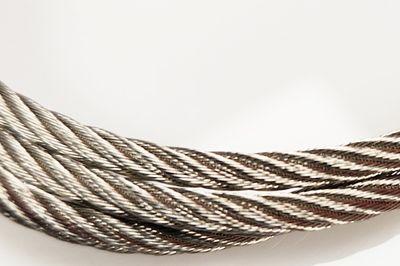
Stainless wire, a ubiquitous yet often overlooked material, is integral to countless applications across various industries. Its unique combination of strength, corrosion resistance, and flexibility makes it indispensable in settings ranging from industrial manufacturing to medical equipment. This article delves into the properties, applications, and advantages of stainless wire rope, highlighting why it remains a material of choice for many engineers and designers.
Properties of Stainless Wire
Stainless wire is made from stainless steel, an alloy composed primarily of iron, with chromium as the key additive, typically at a minimum of 10.5%. The addition of chromium is crucial as it forms a thin layer of oxide on the surface of the steel, known as the passive layer, which prevents corrosion. Other elements such as nickel, molybdenum, and nitrogen may be added to enhance specific properties like ductility, strength, and resistance to pitting and crevice corrosion.
Key properties of stainless wire include:
- Corrosion Resistance: The most notable property of stainless wire is its ability to resist rust and corrosion, making it ideal for use in harsh environments, including marine and industrial settings.
- Strength and Durability: Stainless wire offers high tensile strength, which makes it suitable for applications requiring robust and long-lasting materials.
- Flexibility and Formability: It can be drawn into various diameters and formed into different shapes without losing its strength, making it versatile for numerous applications.
- Temperature Resistance: Stainless wire can withstand extreme temperatures, both high and low, making it suitable for use in various thermal conditions.
Applications of Stainless Wire
The unique properties of stainless wire lend themselves to a broad range of applications across different industries:
- Medical Field: In the medical industry, stainless wire is used in surgical instruments, orthodontic braces, and catheters due to its biocompatibility and resistance to corrosion.
- Construction: Stainless wire is employed in the construction sector for structural supports, safety railing, and in the fabrication of bridges and buildings where durability and strength are paramount.
- Automotive Industry: In automotive manufacturing, stainless wire is used for exhaust systems, seat springs, and safety belt mechanisms, capitalizing on its strength and resistance to high temperatures.
- Aerospace: The aerospace industry utilizes stainless wire for applications requiring materials that can withstand high stress and harsh environmental conditions, such as in fasteners, springs, and control cables.
- Food and Beverage Industry: Due to its non-reactive nature, stainless wire is extensively used in the food and beverage industry for equipment like conveyors, grills, and food processing machinery.
- Electronics: In electronics, stainless wire is used for components such as resistance wires, springs, and connectors, benefiting from its conductivity and strength.
Advantages of Stainless Wire
The use of stainless wire offers several advantages that contribute to its widespread adoption:
- Longevity: The corrosion-resistant nature of stainless wire ensures a longer lifespan even in challenging environments, reducing the need for frequent replacements.
- Maintenance: Stainless wire requires minimal maintenance compared to other materials, resulting in lower overall costs.
- Aesthetic Appeal: Its shiny, polished finish makes stainless wire an attractive choice for visible applications, adding to the aesthetic value of products and structures.
- Recyclability: Stainless steel is highly recyclable, making stainless wire an environmentally friendly option that supports sustainability efforts.
- Versatility: The ability to tailor the composition of stainless steel allows manufacturers to produce stainless wire with specific properties suited to diverse applications.
Conclusion
Stainless wire is a critical material that combines durability, strength, and corrosion resistance, making it suitable for a vast array of applications. From medical devices to construction, automotive to aerospace, and beyond, stainless wire’s unique properties make it an indispensable resource. Its longevity, low maintenance, and aesthetic qualities further enhance its appeal, ensuring that it remains a preferred choice in many industries for years to come.
